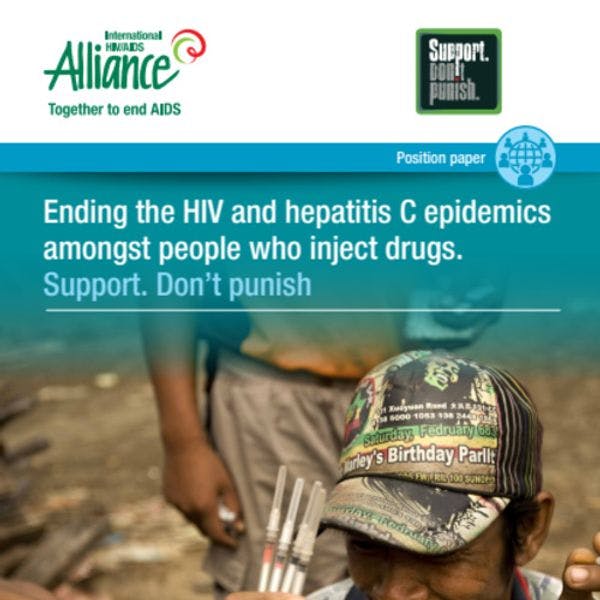Mettre fin aux épidémies de VIH et d’hépatite C au sein des usagers de drogues injectables
L’Alliance appelle les dirigeants mondiaux à adopter des programmes et des stratégies basés sur des preuves, ancrés dans le principe de réduction des risques. Pour en savoir plus, en anglais, veuillez lire les informations ci-dessous.
Abonnez-vous à l'Alerte mensuelle de l'IDPC pour recevoir des informations relatives à la politique des drogues.
The sharing of injecting equipment is driving HIV and hepatitis C (HCV) transmission in many parts of the world. Roughly one third of new HIV infections outside sub-Saharan Africa are the result of unsafe injecting. In 2014 alone, an estimated 110,000 people who inject drugs were newly infected with HIV.
The evidence for the effectiveness of harm reduction interventions is described by UNAIDS as irrefutable and all relevant UN agencies now endorse a harm reduction approach to HIV and drug use. Cost-effective harm reduction programmes that use peer-based outreach and feature clean needle and syringe programmes, opiate substitution therapy and HIV testing and treatment are proven to be effective in reducing HIV transmission and other harms such as hepatitis C transmission, crime rates and overdose deaths.
Keep up-to-date with drug policy developments by subscribing to the IDPC Monthly Alert.
